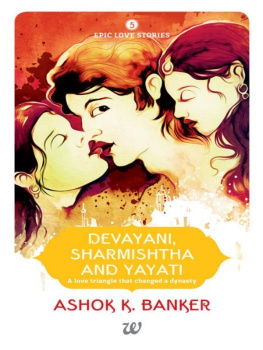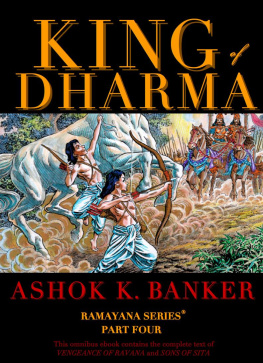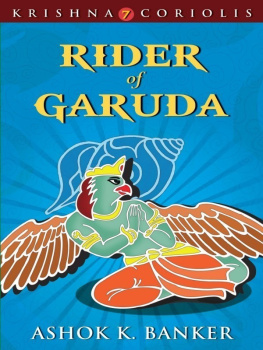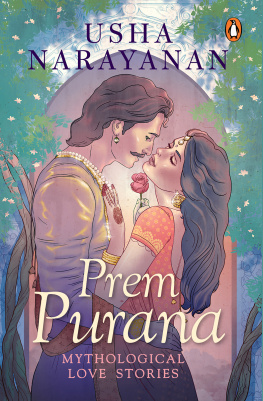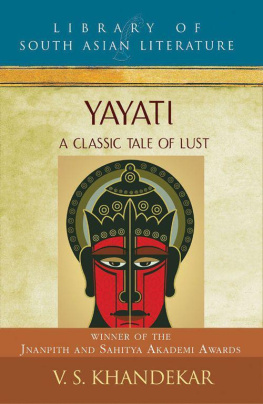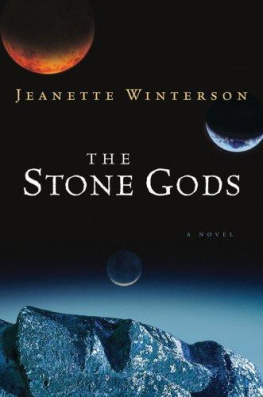westland ltd
Ashok Kumar Bankers internationally acclaimed epic retellings are published in 56 countries, several hundred reprint editions, with over 1.4 million copies currently in print. His Ramayana Series is arguably the most popular English-language retelling of the ancient Sanskrit epic. His Krishna Coriolis is hugely popular among young readers. Ashok is of mixed-race and nationality, a non-Hindu, and neither religious nor spiritual. He is one of the few living Indian authors included in The Picador Book of Modern Indian Writing and The Vintage Anthology of Indian Literature. His writing is used as a teaching aid in management and educational courses worldwide. His e-book venture akbebooks.com is Indias first best-selling e-bookstore and e-publisher. Ashok is 48 years old and lives with his family in Mumbai. Over 41,000 readers have corresponded with him at his website ashokbanker.com. He looks forward to hearing from you.
||SHAKUNTALA AND
DUSHYANTA||
the love story that gave birth to a nation

Epic Love Stories Book 1
ASHOK K. BANKER

westland ltd
61, Silverline Building, Alapakkam Main Road, Maduravoyal, Chennai 600 095
No. 38/10 (New No. 5), Raghava Nagar, New Timber Yard Layout, Bangalore 560 026
23/181, Anand Nagar, Nehru Road, Santacruz East, Mumbai 400 055
93, Ist Floor, Sham Lal Road, Daryaganj, New Delhi 110 002
First published in India by westland ltd 2013
Copyright Ashok K. Banker 2013
All rights reserved
10 9 8 7 6 5 4 3 2 1
ISBN: 978-93-82618-28-7
Typeset in Dante MT by SRYA, New Delhi
Printed at Thomson Press (I) Ltd.
For sale in the Indian sub-continent only
This book is sold subject to the condition that it shall not by way of trade or otherwise, be lent, resold, hired out, circulated, and no reproduction in any form, in whole or in part (except for brief quotations in critical articles or reviews) may be made without written permission of the publishers.
||SHAKUNTALA AND DUSHYANTA||
the love story that gave birth to a nation

ASHOK K. BANKER
||ONE||
A great king entered a vast jungle. He was accompanied by his army, hundreds of horses, elephants, warriors armed with swords, spears, balas, maces, javelins, lances and other weapons. They roared and cheered to show their might as they rode through the forest. Conch blowers sounded their shell trumpets, dhol drummers pounded their kettle drums. The chariot wheels rumbled, the elephants trumpeted, the horses neighed. All the denizens of the forest, animal, insect and human, wondered at this great noise and stopped still in fear.
The king was exceedingly handsome and well loved. The women of his kingdom showered flowers and praises and coy invitations upon him when he rode through the streets. Wealthy and powerful, he wanted for nothing. His enemies feared him enough to show great respect and avoid confrontation those that were foolish enough to oppose him in battle met with devastation and ruin, and were massacred or enslaved. Brahmins paid homage to his greatness, kusalavya bards sang his praises. But after the king had conquered all the realms he desired to possess, and had partaken of all the fruits of pleasure, he grew restless of kingship and sought new thrills and pursuits. His favourite pastime was the hunt. Unlike earlier kings of his line who preferred to ride out alone or in small packs, hunting stealthily, he rode out with small armies, making a great show of it so that everyone knew that the kings hunt was passing by. All heads turned to watch the glamour of his entourage. Many of his citizens even ran behind his train or followed on horse or by wagon. But each time he went farther and farther into the deep jungle, and eventually, all fell back and turned homewards. Finally, only he and his retinue continued, making their way noisily forward, with great merriment and clash of music and voices. Even his chariot was designed to produce the loudest sound, its heavy iron-clad wheels rumbling ominously, the effect intended to strike fear into the hearts of his enemies; it had become his trademark as a king at arms. Despite its ponderous rumbling, the chariot was drawn by powerful bhoja stallions and capable of achieving great speeds, often compared to the swiftness of Garuda by those who observed it from afar.
That day, the king came to a new place, a forest within the great aranya, the unexplored wilderness that still covered much of the earth. It was a beautiful grove comparable to Nandana itself, the fabled garden of the king of the gods in his heavenly realm, Indraloka. Magnificent bilva, arka, khadira, kapitha and dhava trees grew in great profusion. Its landscape was varied, and ranged from mountains and valleys to great plains spotted with great boulders. There was no sign of water or human habitation. The king and his retinue rode on for several yojanas, marvelling at this new place they had discovered, so far removed from civilization. In the forested parts of this country, they were amazed at the profusion of game. The greatest herds of deer they had ever seen abounded here, as did every other manner of forest creature. So unaccustomed were these beasts to the sight or scent of humans that they stood still at first and stared in puzzlement at the new arrivals, unafraid and unshy. With great enthusiasm, the king and his best men embarked on their hunt. They slaughtered deer by the score. Entire families of tigers were massacred by arrowshot alone. Those that were only wounded, he dismounted from his chariot and slew with his sword. The hunt continued for days and he had recourse to every manner of weapon which he employed in the killing of all manner of beasts. He brought down lions with spears, smashed the skulls of wild boars with maces, flung javelins into the thick hide of elephants. Roaring with exultation like the very predators he killed, he took pleasure and pride in his kills, massacring the animals of that unspoiled forest. At last, in alarm and panic, the creatures of the region began to flee before the thundering advance of this manic herd of two-legged killers, entire herds dispersing and stampeding, deer crying out and leaping in all directions to flee their tormentors, even the long-fanged cats slinking away silently to hide in the deep shadows and glare balefully at their new rivals.
In the nights, while the king and his jubilant band of followers feasted on the choicest portions of the meat they had hunted, some predators worked their vengeance. Men were dragged off screaming into the darkness, heads chomped to pulp and limbs crushed between iron jaws, bones smashed by rampaging elephants or bellies ripped open by razor-sharp boar tusks. But these losses were minor compared to the slaughter of the animals. As always, man was the cruellest predator of all, hunting for pleasure rather than need. The carcasses they piled up could have fed a force a hundred times their size for weeks. Most would rot uneaten, beautiful beasts slain for mans cruel pleasure.
The forest had its revenge on the invading force. The riverbeds were parched, the ponds dry. Not a drop of water was to be found for miles and miles. Search as they may, they could find no trace of water, running or still. Surely the animals must slake their thirst somehow. But the animals could not speak, nor did the forest yield its secret. And so the king and his entourage thirsted mightily even as they tired of the salty meat of their kills and craved other foods. Yet these deprivations only infuriated the king further and rather than withdraw his men, he drove them further into the new country each day, slaying more and more creatures in prodigious numbers. The sheer scale of the massacre grew to epic proportions. Some say at the very least he slew several hundreds, but most insist the number of slaughtered beasts ran into the several thousands. Enraged by extreme thirst and blood-rage, the king was like a conqueror possessed, waging war against the animals of that region like a mad buffalo run amok.
Next page
